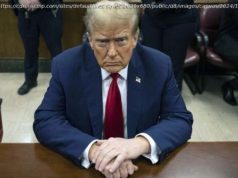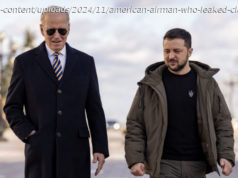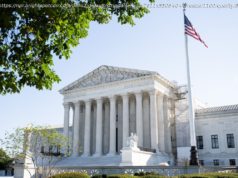The deal lifted shares for both companies, punished grocery companies, and added a cool $2 billion to Jeff Bezos’ net worth.
Amazon’s deal to purchase Whole Foods was big. Its biggest ever, in fact.
The $13.7 billion deal lifted shares for both companies, punished the stocks of grocery companies who now have even more reason to fear Amazon’s moves onto their turf, and added a cool $2 billion to Jeff Bezos’ net worth .
Here’s a brief look at the winners and losers in Friday’s big deal.
The Amazon CEO’s already formidable net worth rose by about $2 billion on news of the deal, according to Bloomberg data. Amazon (amzn) shares surged more than $23 Friday, an increase of about 2.4%. Bezos owns almost 17% of the company.
Including his Amazon stock, his stake in the aerospace company Blue Origin and other assets, Bezos is worth about $84.7 billion, according to Bloomberg, making him the second-richest person in the world .
With a 9% stake, much of it accumulated relatively recently, Jana Partners was Whole Foods’ second largest investor. The activist hedge fund had been pressuring the grocery chain to make major changes in its management or find a buyer. Whole Foods CEO John Mackey had lambasted the hedge fund as «greedy bastards.»
But Jana sure had good timing, and now they’re poised to make about $300 million on a stake in Whole Foods (wfm) they had only disclosed in April, Reuters reports. (Disclosure: Jana Partners recently sold a stake in Time Inc. (time) , which owns Fortune.)
«It’s good news for consumers, » Phil Lempert, founder of SupermarketGuru.com, told our partners at MONEY, calling it «fabulous» for grocery shoppers looking to save money.
Analysts expect Amazon to put downward pressure on prices across the supermarket industry.
«Amazon can be expected to work to deliver better value to grocery customers, both online and within the brick-and-mortar space, » Mark Hamrick, a Bankrate.com senior economic analyst, told MONEY. «»This will be a good deal for consumers.»
Shares of other companies in the grocery sector quickly shed value on news of the sale Friday morning, opening as little as 5% and as much as almost 20% lower and losing more than $13 billion dollars in value. Supervalu (svu) was hit hard, dropping more than 14% on the day, and Kroger (kr) didn’t fare much better, losing more than 9%.
Even retail giants Walmart @walmart and Target (txt) were down, 4.6% and 5.1%, respectively.
It was only last year that Instacart inked a deal to be Whole Foods’ exclusive delivery partner. So much for that. Having Whole Foods as a source for nosh is sure to help win over consumers who might be skeptical of Amazon’s grocery delivery service, Amazon Fresh.
“People like to touch and feel their fresh foods, ” David Portalatin, national analyst for the NPD Group on food and beverage consumption, told Fortune earlier on Friday, and the ability to see where their groceries are coming could make a difference. Whole Foods, he said, “gives Amazon instant credibility from a quality perspective.”






